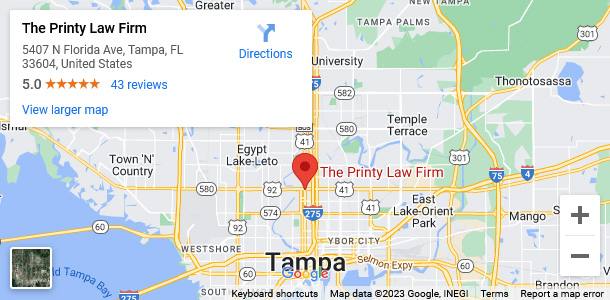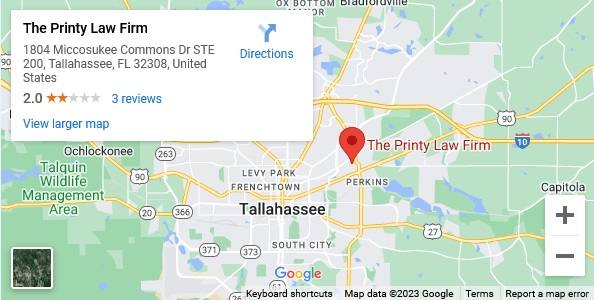Know your rights under the FMLA (Family Medical Leave Act)
-
Are you eligible?
The Family Medical Leave Act does not apply to all employees. First, your employer must have more than 50 employees in your office (or within 75 miles of your office). If your employer has less than 50 employees you are likely not covered by the FMLA. Second, you must have worked at your employer for at least 12 months. This requires that you have worked at least 1250 hours in the last 12 months for your employer.
-
What protection does the FMLA provide?
The FMLA requires employers to offer eligible employees at least 12 weeks of unpaid leave for serious health conditions. Events that are covered include: child birth and care, care for a family member with a serious condition, or care for the employees own serious condition.
-
Can a father use the FMLA after the birth of his child?
Yes, qualifying fathers can use the FMLA to care for their spouse and child after childbirth.
What qualifies as a chronic serious health condition?
The regulations governing the FMLA define a chronic serious health condition as one that 1) requires “periodic visits” for treatment by a healthcare provider or nurse under the supervision of the health care provider, 2) continues over an extended period of time, and 3) may cause episodic rather than continuing periods of incapacity. The regulations clarify this definition by defining “periodic visits” as at least twice a year.
-
Q: I have 12 months of service with my employer, but they are not consecutive. Do I still qualify for FMLA?
A. You may. In order to be eligible to take leave under the FMLA, an employee must (1) work for a covered employer, (2) work 1,250 hours during the 12 months prior to the start of leave, (3) work at a location where 50 or more employees work at that location or within 75 miles of it, and (4) have worked for the employer for 12 months. The 12 months of employment are not required to be consecutive in order for the employee to qualify for FMLA leave. The regulations clarify, however, that employment prior to a continuous break in service of seven years or more need not be counted unless the break in service is (1) due to an employee’s fulfillment of military obligations, or (2) governed by a collective bargaining agreement or other written agreement.
-
Q. If I have to miss work due to National Guard or Reserve duty, will this affect my eligibility for FMLA leave?
A. No. The regulations make clear the protections for our men and women serving in the military by stating that a break in service due to an employee’s fulfillment of military obligations must be taken into consideration when determining whether an employee has been employed for 12 months or has the required 1,250 hours of service.
Under the Uniformed Services Employment and Reemployment Rights Act of 1994 (USERRA), hours that an employee would have worked but for his or her military service are credited toward the employee’s required 1,250 hours worked for FMLA eligibility. Similarly, the time in military service also must be counted in determining whether the employee has been employed at least 12 months by the employer.
Example:
Dean worked for his employer for six months in 2008, then was called to active duty status with the Reserves and deployed to Iraq. In 2009, Dean returned to his employer, requesting to be reinstated under the USERRA. Both the hours and the months that Dean would have worked but for his military status must be counted in determining his FMLA eligibility.
Employer Notice Requirements
-
Q. What are employers required to post regarding the FMLA?
A. Employers must post a general notice explaining the FMLA and providing an explanation of procedures for filing a claim under the Act. The posted notice must include a definition of what constitutes a serious health condition, the new military family leave entitlements, and employer and employee responsibilities.
-
Q. How soon after an employee requests leave must an employer tell the employee whether the leave will be counted as FMLA leave?
A. Unless justified by unusual circumstances an employer has five days to tell the employee whether the leave will permitted under the FMLA. Additionally, if the amount of leave needed is known, an employer must inform an employee of the number of hours, days or weeks that will be counted against the employee’s FMLA leave.
Employee Notice Requirements
-
Q. How much notice must an employee give before taking FMLA leave?
A. An employee must give at least 30 days notice when the need for leave is foreseeable, such as in pregnancy. Otherwise, an employee is required to provide notice “as soon as practicable.”
Certification of Need for FMLA Leave
-
Q. Do I have to give my employer my medical records for leave due to a serious health condition?
A. No. An employee is not required to give the employer his or her medical records. The employer, however, does have a statutory right to request that an employee provide medical certification containing sufficient medical facts to establish that a serious health condition exists.
-
Q. What if I do not want my employer to know about my medical condition?
A. If an employer requests it, an employee is required to provide a complete and sufficient medical certification in order to take FMLA-protected leave due to a serious health condition.
-
Q. May my employer contact my health care provider about my serious health condition?
A. Any contact between an employer and an employee’s health care provider must comply with the Health Insurance Portability and Accountability Act (HIPAA) privacy regulations. Under the regulations, employers may contact an employee’s health care provider for authentication or clarification of the medical certification by using a health care provider, a human resource professional, a leave administrator, or a management official. In order to address employee privacy concerns, the rule makes clear that in no case may the employee’s direct supervisor contact the employee’s health care provider. In order for an employee’s HIPAA-covered health care provider to provide an employer with individually-identifiable health information, the employee will need to provide the health care provider with a written authorization allowing the health care provider to disclose such information to the employer. Employers may not ask the health care provider for additional information beyond that contained on the medical certification form.
-
Q. How soon after I request leave does my employer have to request a medical certification of a serious health condition?
A. Under the regulations, an employer should request medical certification, in most cases, at the time an employee gives notice of the need for leave or within five business days. If the leave is unforeseen, the employer should request medical certification within five days after the leave begins. An employer may request certification at a later date if it has reason to question the appropriateness or duration of the leave.
-
Q. Can employers require employees to submit a fitness-for-duty certification before returning to work after being absent due to a serious health condition?
A. Yes. As a condition of restoring an employee who was absent on FMLA leave due to the employee’s own serious health condition, an employer may have a uniformly applied policy or practice that requires all similarly situated employees who take leave for such conditions to submit a certification from the employee’s own health care provider that the employee is able to resume work. Under the regulations, an employer may require that the fitness-for-duty certification address the employee’s ability to perform the essential functions of the position if the employer has appropriately notified the employee that this information will be required and has provided a list of essential functions. Additionally, an employer may require a fitness-for-duty certification up to once every 30 days for an employee taking intermittent or reduced schedule FMLA leave if reasonable safety concerns exist regarding the employee’s ability to perform his or her duties based on the condition for which leave was taken.
-
Q. What happens if I do not submit a requested medical or fitness-for-duty certification?
A. If an employee fails to timely submit a properly requested medical certification (absent sufficient explanation of the delay), FMLA protection for the leave may be delayed or denied. If the employee never provides a medical certification, then the leave is not FMLA leave. If an employee fails to submit a properly requested fitness-for-duty certification, the employer may delay job restoration until the employee provides the certification. If the employee never provides the certification, he or she may be denied reinstatement.
Miscellaneous Questions
-
Q. Can my FMLA leave be counted against me for my bonus?
A. Yes. Under the regulations, an employer may deny a bonus that is based upon achieving a goal, such as hours worked, products sold or perfect attendance, to an employee who takes FMLA leave (and thus does not achieve the goal) as long as it treats employees taking FMLA leave the same as employees taking non-FMLA leave. For example, if an employer does not deny a perfect attendance bonus to employees using vacation leave, the employer may not deny the bonus to an employee who used vacation leave for a FMLA-qualifying reason.
Example:
Mary uses twenty days of FMLA leave during the quarter for surgery. Mary substitutes paid vacation leave for her entire FMLA absence. Under Mary’s employer’s quarterly attendance bonus policy, employees who use vacation leave are not disqualified from the bonus but employees who take unpaid leave are disqualified. Mary’s employer must treat her the same way it would treat an employee using vacation leave for a non-FMLA reason and give Mary the attendance bonus.
-
Q. My medical condition limits me to a 40 hour workweek but my employer has assigned me to work eight hours of overtime in a week. Can I take FMLA leave for the overtime?
A. Yes. Employees with proper medical certifications may use FMLA leave in lieu of working required overtime hours. The regulations clarify that the hours that an employee would have been required to work but for the taking of FMLA leave can be counted against the employee’s FMLA entitlement. Employers must select employees for required overtime in a manner that does not discriminate against workers who need to use FMLA leave.
-
Q. Can I use my paid leave as FMLA leave?
A. Yes. Under the regulations, an employee may choose to substitute accrued paid leave for unpaid FMLA leave if the employee complies with the terms and conditions of the employer’s applicable paid leave policy. The regulations also clarify that substituting paid leave for unpaid FMLA leave means that the two types of leave run concurrently, with the employee receiving pay pursuant to the paid leave policy and receiving protection for the leave under the FMLA. If the employee does not choose to substitute applicable accrued paid leave, the employer may require the employee to do so.






